BioAni
High-Protein, Sustainable Fishmeal Made From Black Soldier Fly Larvae
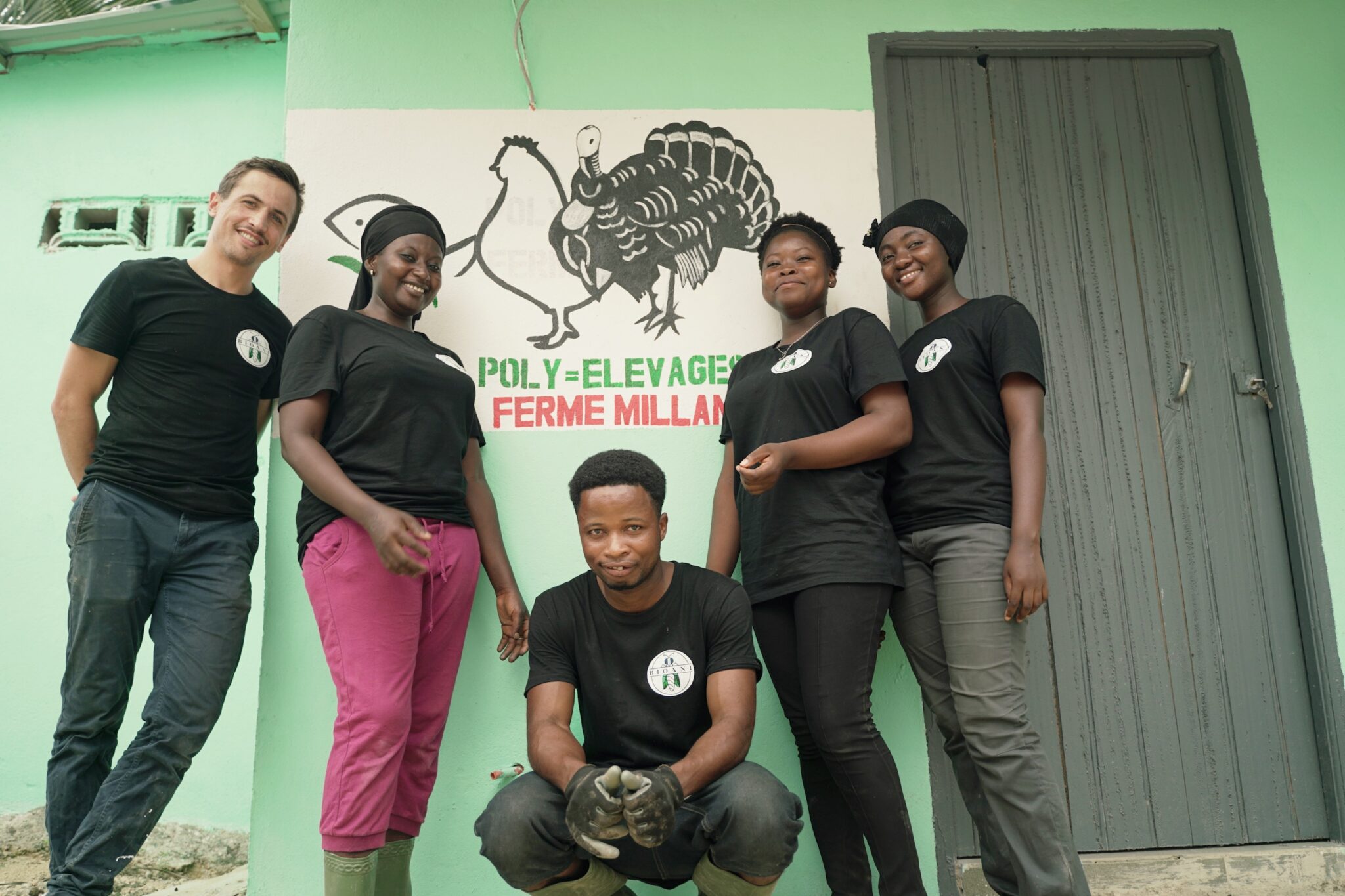
BioAni is a startup located in Côte d’Ivoire that produces high-protein fishmeal and animal feed made from black soldier fly larvae. The company also produces natural fertilizer made from larvae frass.
Quick facts
- In 2022, the Ivorian government committed to a 1,260% increase in fish production through aquaculture by 2031 (from 5,000 to 68,000 tons).
- Conventional fishmeal, the food fed to farmed fish, is made of wild-caught fish, by-catch, and fish by-products, which is threatening the maritime food chain (1 kg of fishmeal requires 4 kg of wild fish).
- Fishmeal represents 75% of the costs of a typical fish farm, making fish farming financially unattractive.
- 85% of the fish actually consumed in Côte d’Ivoire is imported (2022).
- 1/3 of the world’s total waste is food waste.
Sources: FAO, Greenpeace, Changing Markets Foundation & Compassion in World Farming, Abidjan.net, Agence Ecofin
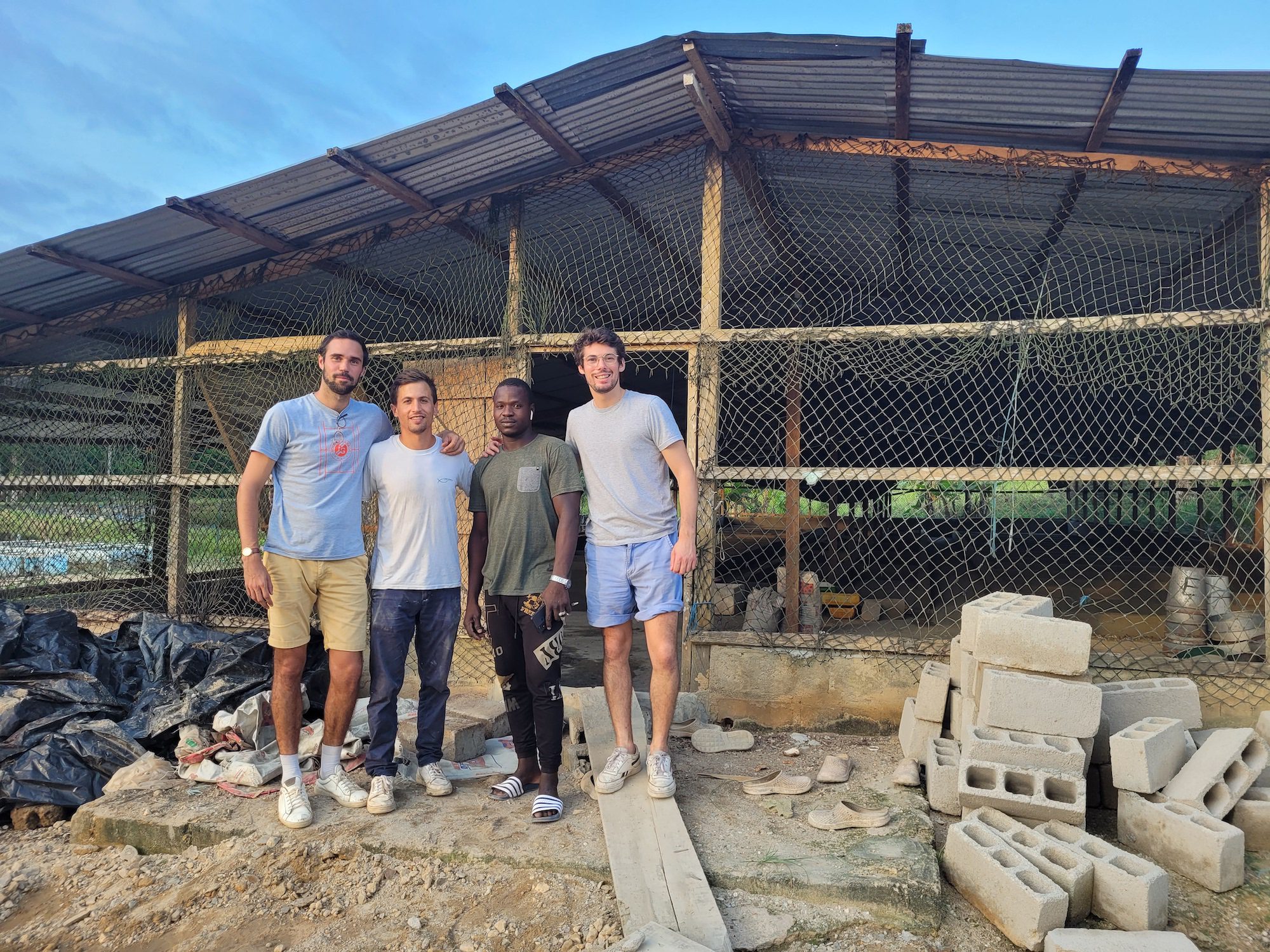
In 2017, BioAni co-founder and CEO Arthur de Dinechin started a recycling company in Ivory Coast. The company failed, and Arthur had to close it down. In 2021, he began experimenting with closed-loop, aquaponic systems in his backyard, which seemed to work well, so he decided to test them on an industrial level and develop the concept in Ivory Coast (where he knew people needed easier access to local, high quality food at good prices).
The only problem was that fishmeal was expensive, and so the system wasn’t financially viable. After much research into cheaper and more eco-friendly fishmeal alternatives, Arthur discovered black soldier flies, which checked all his boxes:
- They eat bio-waste
- They are have a protein quantity
- They produce natural fertilizer
- They live in Africa
- They are not harmful for the environment or humans (non-invasive and don’t transmit disease)
- They are efficient (they never sleep)
- They only drink water and reproduce quickly
Six months later, Arthur had learned how to breed, nourish, and care for black soldier flies. He invited Thibault Guille and Amaury Gaschignard to join the project, and BioAni was born.
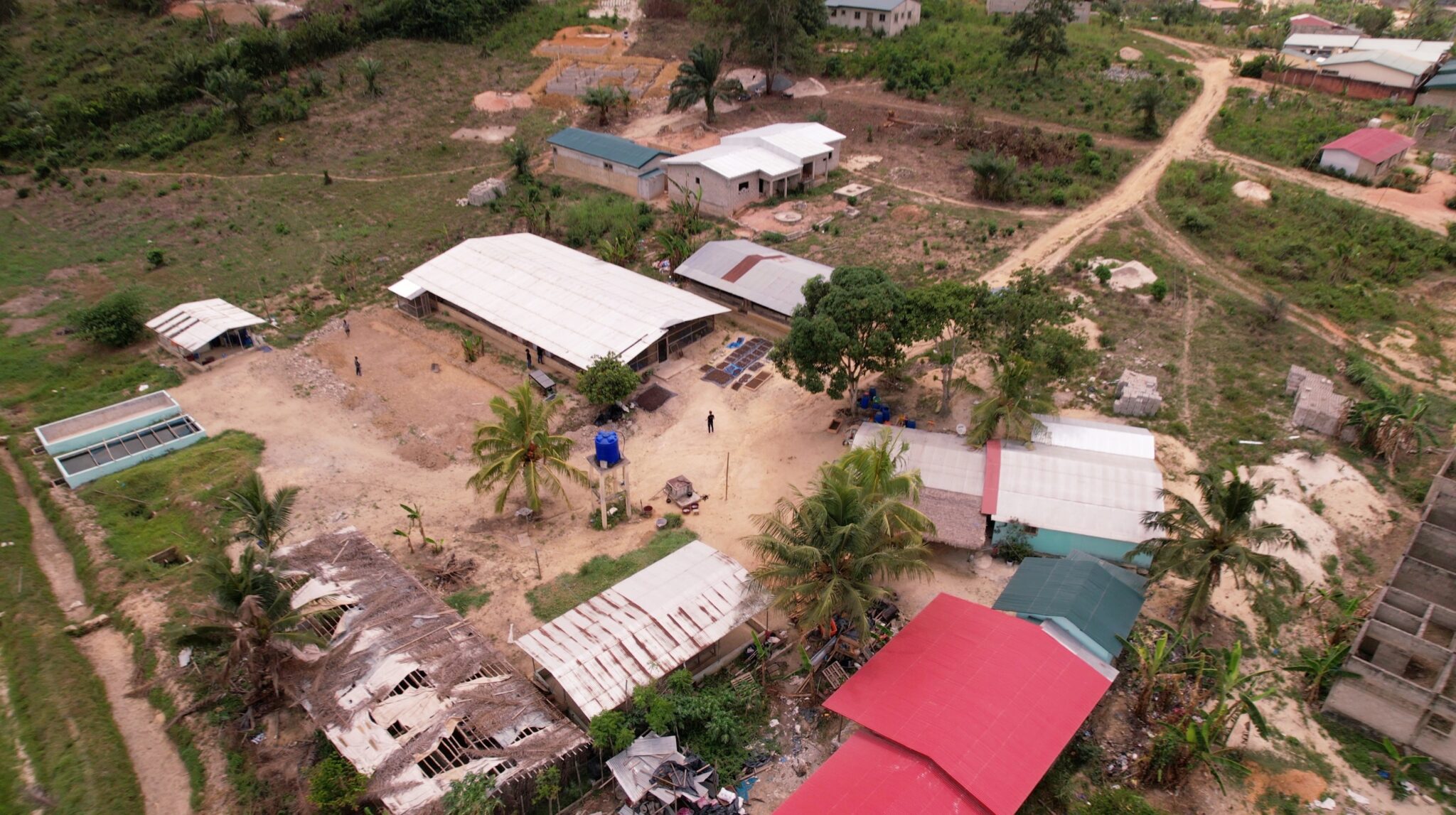
Process
Black solider flies have a 10-day lifespan, and their only goal is to mate and lay eggs, so reproducing is easy and quick. BioAni facilitates the hatching of these eggs to welcome hungry larvae into their crates. They then recover about 120 tons (per month) of organic waste from local markets and feed that to the larvae, who ingest the biomass over one week and transform it into hundreds of pounds of natural fertilizer (frass).
This natural fertilizer is used at the BioAni headquarters and at other local farms to fertilize soil. After 40% is transformed into frass, the remaining 60% is dried and transformed into feed for animals and fish. The production is local, immediate, and low-cost, therefore resilient to economic and environmental shocks.
The larvae-based feed is high in protein and can come in many forms: live, frozen, dehydrated, concentrates, granules, and oil. It will be used mainly for fish and poultry farming but BioAni plans to expand into the pet food, human food, and pharmaceutical markets in the future.
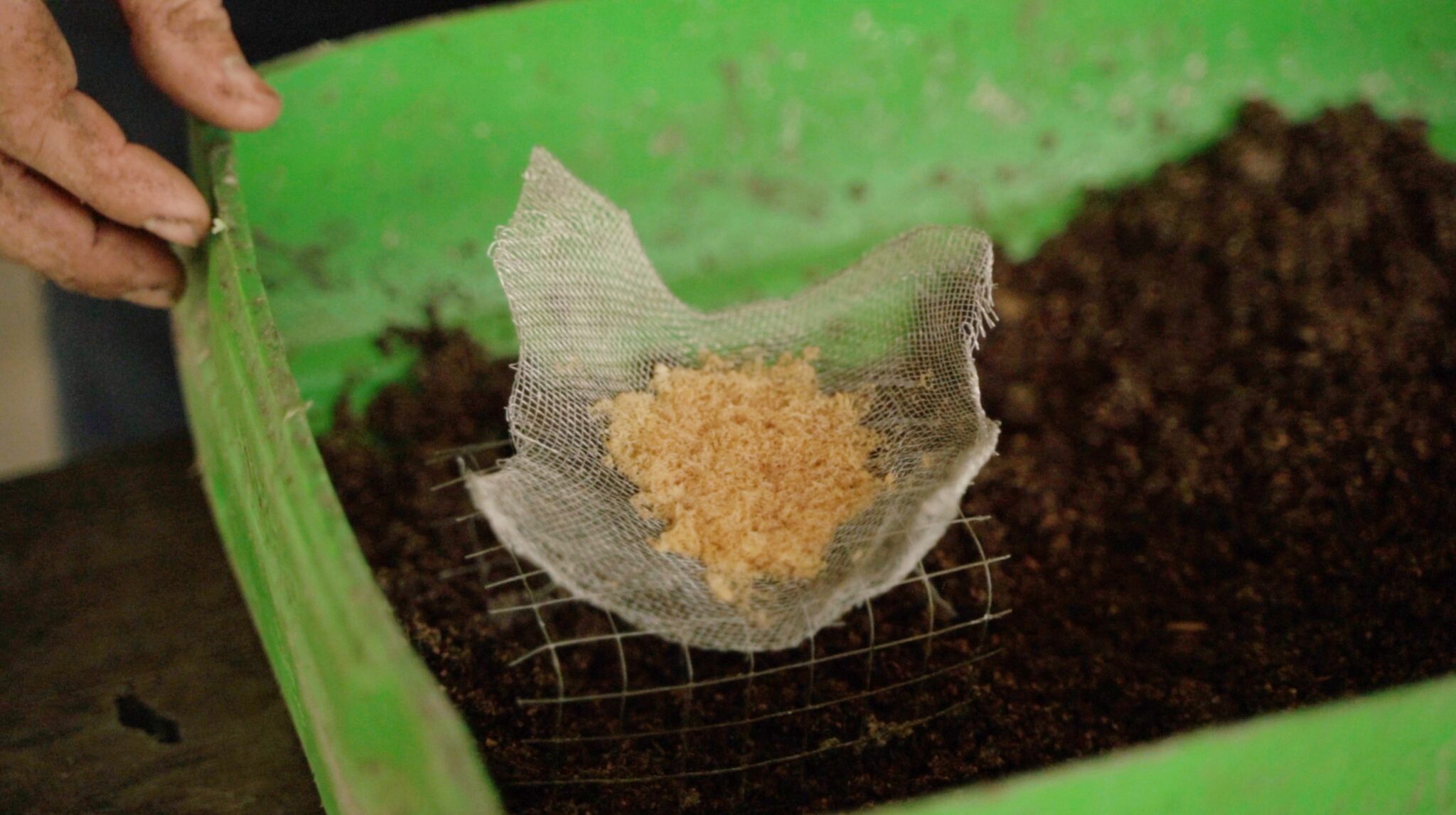
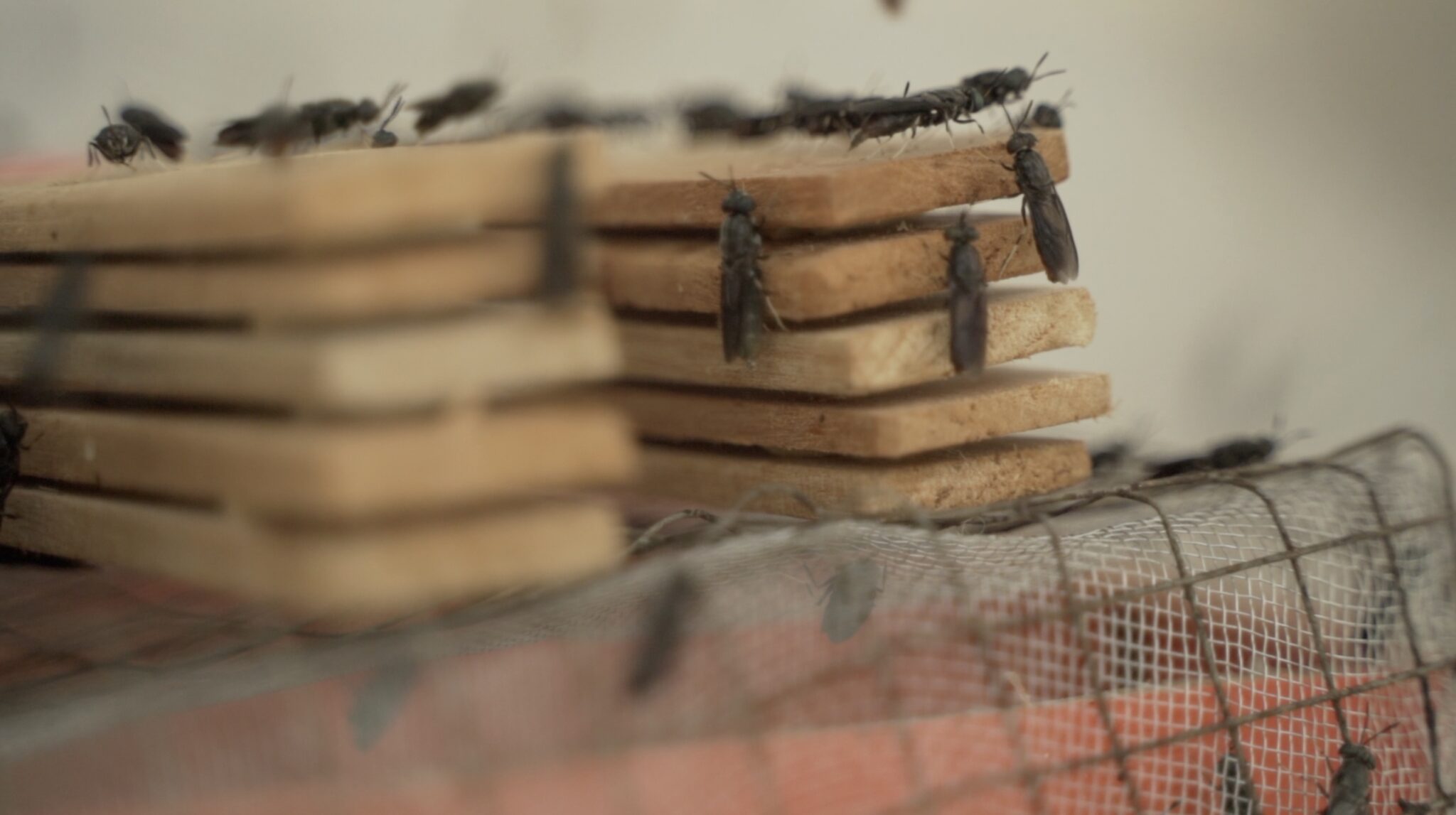
BioAni is solving three major problems present in Ivory Coast:
- Food waste that rots in the street
- For each ton of larvae produced, 5-6 tons of waste are removed from the streets.
- Harmful fertilizers used in agriculture
- 100% natural, insect-based fertilizer
- Threatened maritime biodiversity
- No need to catch wild fish for the fishmeal
Lastly, BioAni is facilitating the creation of new internships and jobs, prioritizing hiring local women, and providing training opportunities for the local community.
our support
The $2,000 Stardust Startups microgrant will be used to purchase new aviaries for the flies, new drying tables for the transformation of larvae into flour, and a stock of palm kernel cake (which is mixed with bio-waste to feed the larvae).
Watch the short video below to see the BioAni team react to their win in May 2022.





